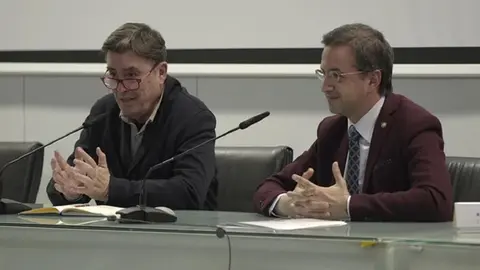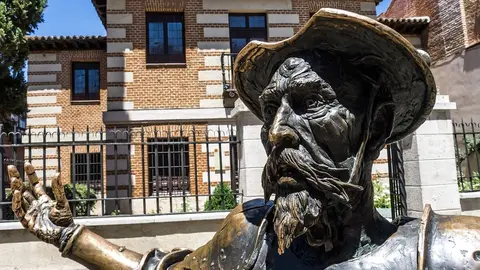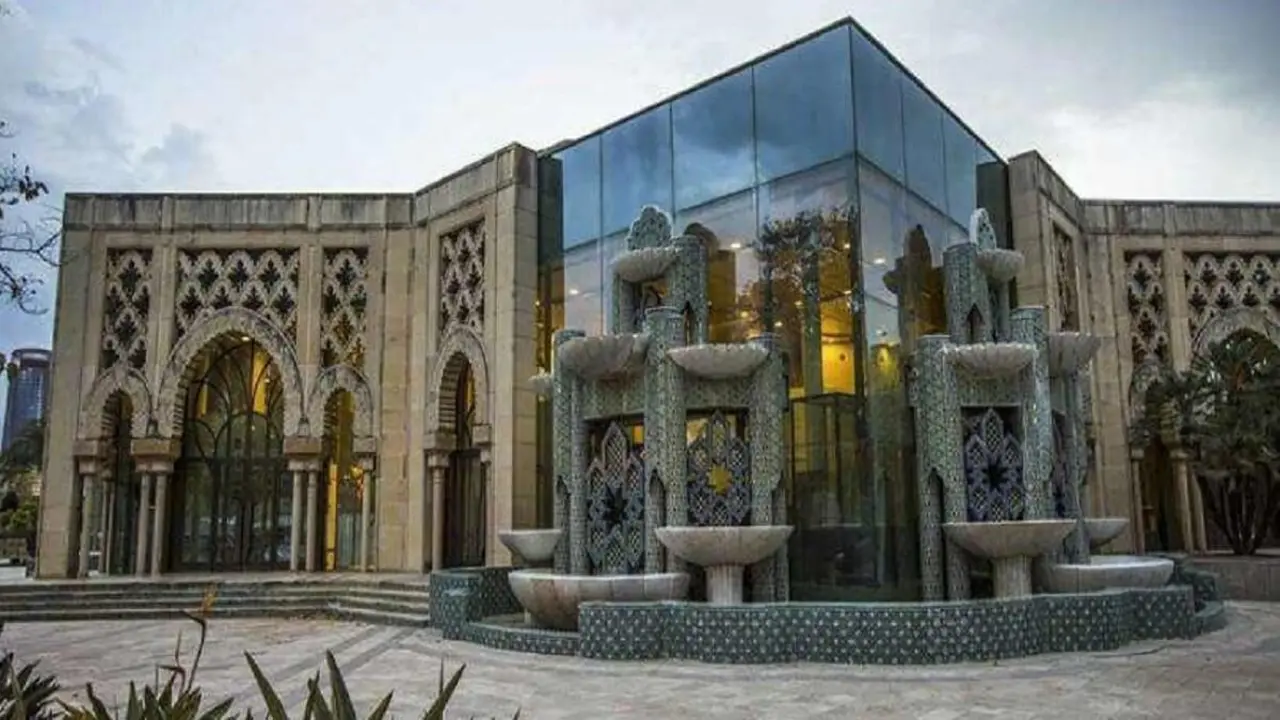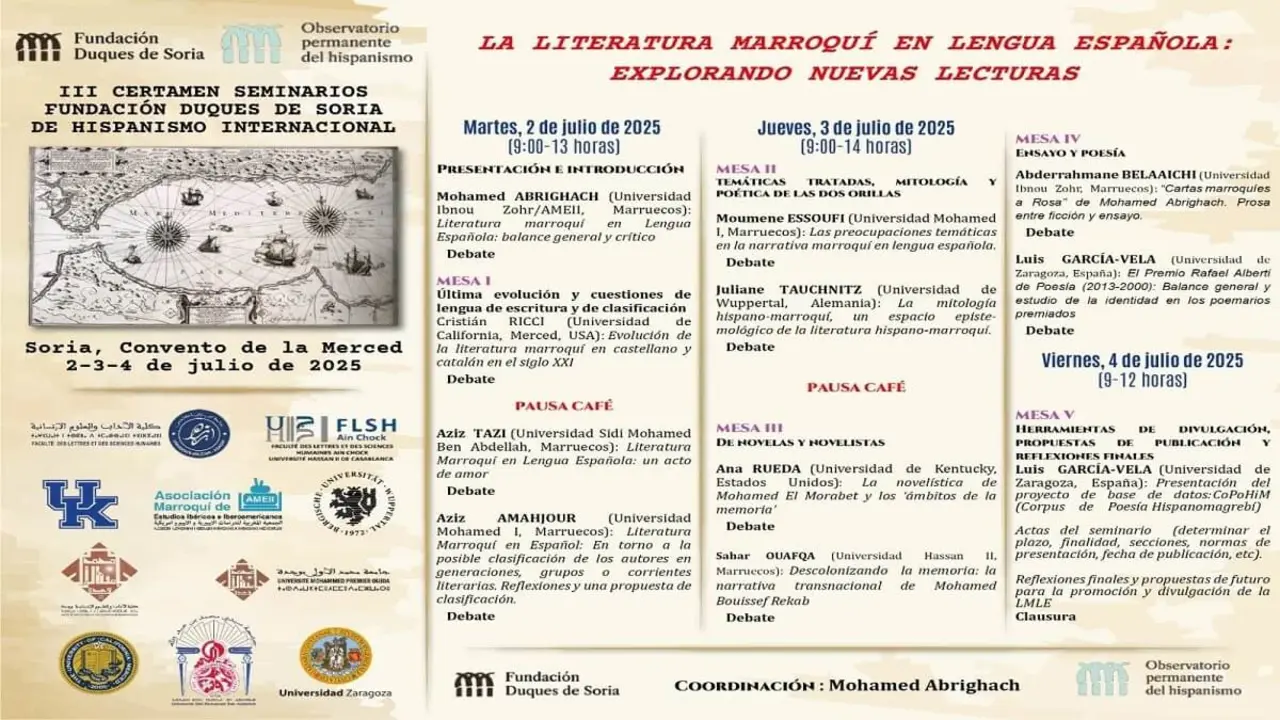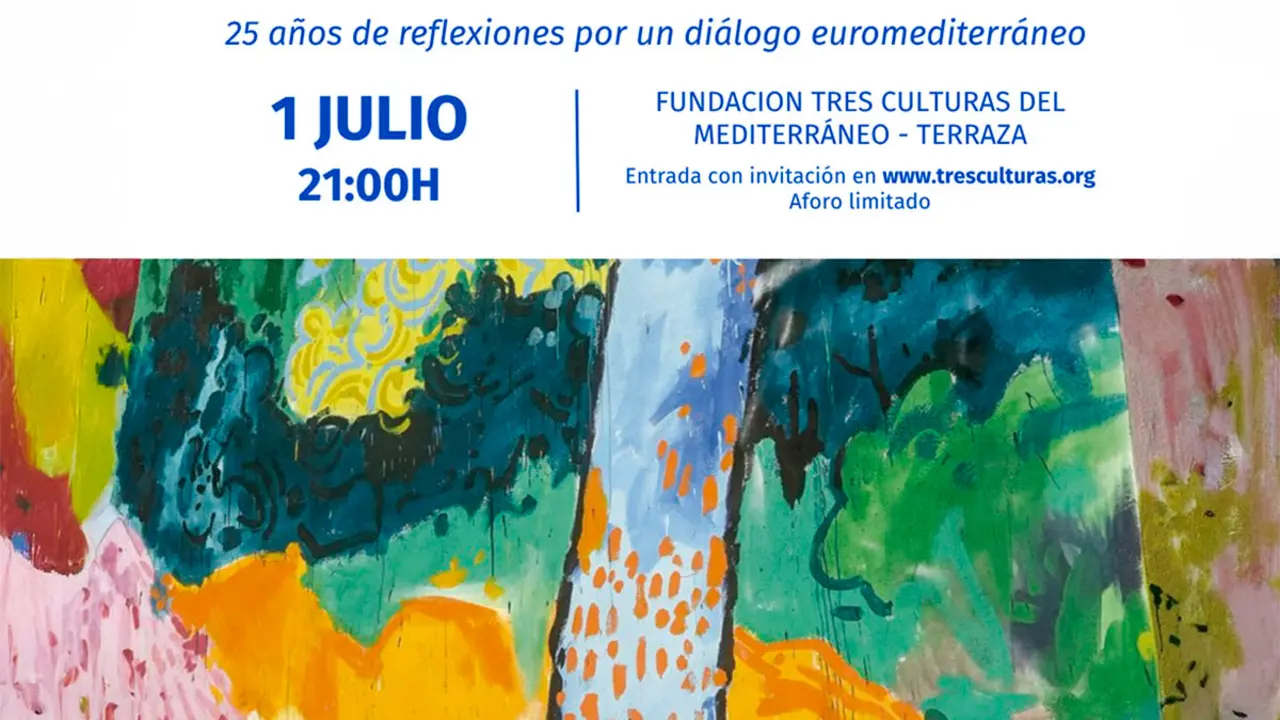The Cervantes Institute strengthens cultural ties with China and promotes Spanish in the country

- Renewal of educational agreements and Dong Yangsheng's legacy in memoriam
- Conference "Spanish, language for a new globalisation", in Shanghai
- More than 60,000 people study Spanish in China
The Director of the Cervantes Institute, Luis García Montero, begins a working trip to China on Monday 15 April, which will take him to visit the Cervantes facilities in Beijing and Shanghai for the first time since he became the head of the institution, and to sign several academic agreements for the certification and teaching of Spanish with educational organisations in the Asian giant.
In addition, on this trip, which will last four days until Saturday 20 April and during which he will be accompanied by the Academic Director of the institution, Carmen Pastor, he will participate in a wide-ranging cultural programme.
China is at the forefront in terms of the number of DELE (Diplomas in Spanish) registrations in the Cervantes Institute network, with more than 5,500 exam takers in 2023 -since its introduction, almost 60,300 exams have been taken-. It is also the first in SIELE results. The demand for Spanish is growing and is taught in secondary and university education.
Since the opening of the Cervantes Institute headquarters in Beijing in 2006 and the Miguel de Cervantes Library in Shanghai in 2007, the number of Spanish students in China has grown to around 60,000, a figure that includes both formal and non-formal education.
Renewal of educational agreements and Dong Yangsheng's legacy in memoriam
García Montero's work schedule will begin on Tuesday 16 April with a meeting in Beijing with the director of the NEEA, Li Qiang, and his deputy director, Zhang Weizhou, which will also be attended by the director of Cervantes in the Chinese capital, Isabel Cervera.
The NEEA (National Educational Examinations Authority) is the body of the Government of the People's Republic of China that authorises the administration of foreign language examinations throughout the country. In 2018, the Cervantes Institute signed an agreement for the recognition of the DELE as certification exams of Spanish language skills in China and the implementation, through the NEEA, of these tests in all its authorised centres, which was a transcendental step for the promotion of Spanish.
Afterwards, the director of Cervantes will hold a meeting with the director of CLEC (Centre for Language Education and Cooperation), Yu Yungfeng, during which the agreement that both institutions have signed for the teaching of Spanish to Chinese teachers assigned to Confucius institutes in Europe and America will be renewed.
In the afternoon, the in memoriam bequest of the Chinese Hispanist Dong Yangsheng will be celebrated, with the participation of his sister, Dong Juan, who will be in charge of delivering the bequest in a symbolic Box of Letters simulated in the auditorium of the Cervantes Institute in Beijing. In addition to the director of the Cervantes, the director of the Beijing centre, Isabel Cervera, the dean of the Beijing Foreign Languages University, Chang Fuliang; Professor Liu Jian, co-author of the book "Modern Spanish"; Tian Ye, a disciple of Professor Dong; the Spanish ambassador to China, Marta Betanzos, and several deans of the faculties of Spanish in Beijing will also take part in the event.
Professor Dong Yangsheng's contribution to the dissemination of Spanish culture in China is immeasurable. The Hispanist, who died last January, was a professor at the Beijing Foreign Languages University and president of the Asian Association of Hispanists and author of what is considered to be the best translation of Don Quixote into Mandarin Chinese.
Wednesday 17 will begin with a visit to the exhibition "Dream Times" by the Spanish performance artist Itziar Okaritz in the Chinese capital's 798 cultural district, which is co-organised by the Cervantes Institute in Beijing. Later, García Montero will meet with representatives of the UCCA (Ullens Center Contemporary Art), in order to strengthen collaboration projects for future cultural activities between the two institutions.
In the afternoon, at the Cervantes Institute in Beijing, the round table "Poetry in translation and to be translated" will be held, with the participation of the poet Jidi Majia; the writer and translator of poetry, Zhou Zan; the Hispanist and translator Zhao Zhenjiang and Luis García Montero, who in 2021 received the "Golden Tibetan Antelope" award for his poetic career. Isabel Cervera, director of Cervantes Beijing, will moderate the round table.

Conference "Spanish, language for a new globalisation", in Shanghai
After his visit to Beijing, García Montero will travel to the megalopolis of Shanghai, where on Thursday 18 April he will visit the facilities of the Miguel de Cervantes Library and meet with the management team and staff. Dependent on the General Consulate of Spain, since 2007 it has organised an intense academic and certifying activity and hosts numerous cultural programmes that bring Hispanic culture closer to the Shanghainese population.
In the afternoon, the Director of the Cervantes Institute will meet with the head of the CIIC - the institution's academic partner in Shanghai - Liu Qin, accompanied by the Director of the Miguel de Cervantes Library, Inma González Puy, and the Academic Director of the Cervantes Institute, Carmen Pastor. During the meeting, they will sign the extension of the collaboration contract for 2024-2026 and an agreement with the Spanish universities that will facilitate internships for their Chinese students in the city of Shanghai.
He will then attend the opening of the exhibition "Frente a la rigidez de las formas", by the artist Pilar Albarracín, at the Miguel de Cervantes Library. The exhibition, which forms part of the "Occupied Spaces" programme, presents her most emblematic videos and performances. The exhibition can be seen at the premises of the Cervantes Institute in Shanghai and in two other spaces in the city, the "Photofairs" fair and the Fotografiska cultural centre.
The following day, 19 April, after a meeting with the rector of the Shanghai International Studies University (SISU), Li Yansong, García Montero will give a lecture at the university's International Education Centre entitled "Spanish, language for a new globalisation", in which he will analyse how language can contribute to establishing more equitable relations in the international context, as well as acting as a bridge between different societies.
Friday afternoon in Shanghai will be the focus of several cultural activities of the Cervantes Institute delegation. It will begin with a visit to the exhibition "Antonio López and the Masters of Spanish Realism", as part of the Cervantes' agreement with the Shanghai Metro. He will then move on to the Pudong Museum of Art (MAP), where he will visit the exhibition 'Years of Splendour. The history of Spain in the Prado Museum", with almost 70 works from the Spanish art gallery, in which the Cervantes Institutes of China are collaborating, which will be inaugurated on 22 April. And it will end with a tour of the audiovisual arts centre, Fotografiska, led by its director, Christian Devilliers, and the curator Han Peipei.
The work programme will conclude on Saturday afternoon, 20 April, with García Montero's presentation of the round table that will take place at the MAP with the participation of its director, Li Minkun, and the director of the Prado, Miguel Falomir.
More than 60,000 people study Spanish in China
The Cervantes Institute is a benchmark institution in China due to its historical, cultural and economic ties with Spain and Latin America. Spanish enjoys good health in the country, where it is consolidating its position as the second foreign language with the highest demand, among other reasons, due to the important economic and cultural interests that the Chinese government maintains with the Spanish-speaking world.
Moreover, in 2018, the growing importance of Spanish on the international scene led the Chinese authorities to allow it to be offered as the first foreign language in the school and university curriculum. According to the latest data, there are more than 60,000 students of Spanish in the People's Republic, 25,000 of them at university, where, according to sources from the Chinese Ministry of Education, it is taught in more than a hundred faculties.
There is also a significant growth in the number of certificates in the country, due above all to the demand from students who wish to continue their studies in a Spanish-speaking country, or from those who learn Spanish in the private sector and who need a diploma with global recognition.
Moreover, as Spain is one of China's main trading partners, mastery of Spanish opens up multiple opportunities in business, tourism and education, not only with Spain but with the entire American continent.
Submitted by José Antonio Sierra, Hispanismo advisor.

